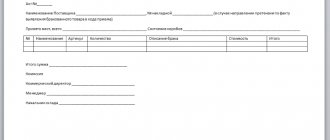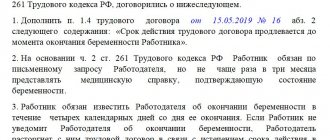Home / Claims / Did the supplier fail to fulfill the terms of the contract? We are writing a complaint about violation of the delivery time of goods
When purchasing, a supply agreement can be drawn up, under which the seller undertakes to deliver the goods to the consumer within the time period specified in the agreement. If these obligations are not met, the injured party has the right to make demands.
The goods were not delivered on time according to the contract
Failure to meet delivery deadlines is unpleasant for the buyer. This can disrupt plans and ruin a planned event. Products not delivered on time may be the reason for the buyer’s unfulfilled obligations to the customer. The result is a spoiled mood, emotional distress, financial and reputational losses.
Store employees explain the violation of delivery deadlines as follows::
- Troubles at customs;
- Suppliers did not fulfill their obligations to the store;
- Lack of personnel, mass layoffs;
- Failure of transport equipment;
- Inspections by regulatory organizations;
- And others.
All this does not actually solve the problem that has arisen. Such excuses can last a week, a month or more. Instead of listening to excuses, the buyer has the right to demand :
- Set a new deadline within which the seller will fulfill previously assumed obligations;
- Return the money transferred (transferred) for advance payment for the goods;
- Compensation for losses incurred as a result of violation of the supply contract.
These requirements are presented to the seller in writing, for which a claim is drawn up for violation of the terms of delivery of the goods.
If there is an advance payment condition, the supply agreement must indicate the period within which the seller is obliged to transfer the goods to the buyer. If it is not there, the injured person has grounds to invalidate the contract.
The buyer has financial leverage over the seller:
- Penalty.
- Compensation for moral damage.
- Compensation for losses incurred.
- Lawyers' fees and court costs.
- A fine of 50% of the amount of the claim.
For example, the penalty begins to accrue from the day on which the seller was obliged to deliver the goods. The amount of the penalty is 0.5% of the amount of money transferred for each day of delay. For example, if 30 thousand rubles were paid, the delivery date is 15 days overdue, the penalty is: 30×15×0.005=2.25 thousand rubles.
But this amount cannot grow indefinitely; it is limited by the amount of the advance payment. In the above example, it cannot be more than 30 tr. That is, its size increases during 200 days of delay. This period is enough to:
- Make sure the seller is dishonest.
- File a claim for violation of the terms of delivery of goods.
- Try to resolve the dispute out of court.
- Go to court and get a decision.
To file a claim, it is necessary to collect a package of documents proving the fairness of the applicant’s claims. One of the evidence is the complaint in question and the response, the seller’s response to it.
Grounds for appeal
The supply agreement consists of a number of clauses, all of which are binding on the parties. Evasion of the conditions or their dishonest fulfillment is a violation. The degree of materiality does not matter. It is necessary when a potential plaintiff seeks to go to court with a request to terminate the agreement.
When making a claim, a party has the right to refer to the provisions of the law and be guided in its preparation only by the text of the agreement. The law cannot describe all possible violations, but only sets guidelines for action for the parties.
Any kind of language in the agreement about the waiver of the right to claim or judicial protection in a particular case has no force and is void.
Application sample
There are no strict forms and forms for the document in question. But for it to have weight in the pre-trial settlement process or trial, the claim must contain :
- Legal name and address of the store/seller (taken from the Unified State Register of Legal Entities).
- Buyer's passport data (full name, registration address).
- The title of the document is a claim for violation of the terms of the contract for the supply of goods.
- The circumstances of the conclusion of the contract - date, place, with whom negotiations were conducted, and who signed.
- Terms of the agreement, including delivery dates.
- The amount transferred by the buyer as an advance payment.
- Indicate what the violation is: a delay in delivery for such and such a number of days.
- Links to the provisions of the Civil Code and the Law on Protection of Consumer Rights.
- List of attached documents.
- Date and signature of the buyer or authorized representative.
Additionally worth including:
- The amount of damage caused by non-compliance with obligations on the part of the supplier;
- The amount of the penalty that has arisen at the time of drawing up the document and what recalculation of it the seller is obliged to make at the time the claim is satisfied.
Additional documents include:
- Supply contract;
- Payment documents – checks, receipts;
- Calculation of penalties;
- Certificates, bills and other official papers, letters that confirm the damage caused.
Additional materials must be submitted in the form of copies; the original remains with the buyer.
For example, due to failure to deliver goods on time, the buyer was unable to fulfill its obligations to customers. The commercial contract with him was terminated. The damage incurred is confirmed by a terminated agreement, letter, claim or complaint from the customer, which clearly indicates the reason for termination.
These and other documents (calculation of damages caused and lost profits) are attached to the claim to the seller.
Product quality
Quality means compliance with the requirements of technical regulations and other regulatory documents or the customer. For example, a buyer asks for goods for a specific purpose. The conditions are considered fulfilled if the goods are suitable for the specified use. Other characteristics may not matter. The parties have the right to agree on the supply of goods of higher quality.
In the sample claim under a supply agreement for low-quality goods, references are made to the terms of the agreement and to technical documents. Copies of photographs, examinations or other documents are included.
Deadlines for response
The procedure for considering and resolving a dispute may be specified in the supply agreement. This also applies to the time frame within which a dispute is opened and conducted. In this case, they are mandatory to comply with. If the supply agreement does not provide for a dispute resolution procedure, a response to the claim is given within 30 days .
The disadvantage of the claim dispute resolution procedure provided for in the agreement is that failure by the buyer to meet these deadlines may be grounds for refusal of the claim.
Therefore, before insisting on determining such a procedure for resolving a dispute, it is necessary to take into account the positive and negative aspects. No restrictions on filing a claim :
- Prevents financial losses due to errors in the direction of circulation;
- Allows you to increase the amount of the penalty;
- Gives the buyer more freedom of action when choosing dispute resolution methods;
- Extends the pre-trial settlement procedure for a month or more (time for postal items).
A mistake made when sending a claim about the terms of the agreement - by regular letter or in person, but without the signature of the responsible person on the second copy - makes it difficult to prove that such a request was made. The seller may deny the very fact of receiving a request from the consumer.
Additional information on the time frame for consideration of claims can be obtained in a special material.
How to file a claim with a supplier for non-fulfillment (improper performance) of a supply agreement
A claim to the supplier is made by the buyer in accordance with the terms of the supply agreement with a mandatory indication of the violations committed and specific requirements for the supplier.
Compliance by the buyer with the pre-trial procedure for a claim for non-fulfillment (improper execution) of a supply contract with a claim against the supplier is mandatory (Part 5 of Article 4 of the Arbitration Procedure Code of the Russian Federation).
On the buyer's side, in particular, these may be requirements:
- on the collection of remuneration for fulfilling the agreed volumes of purchase of goods;
- collection of penalties for violation of delivery deadlines;
- return of unjust enrichment in a situation where the supply contract was terminated due to the supplier’s failure to fulfill his obligation to transfer the goods, despite the fact that payment was made to him, etc.
If the buyer fails to comply with the claim procedure, if it was mandatory, his statement of claim will be left by the court without consideration, which will lead to a loss of time (clause 2, part 1, article 148 of the Arbitration Procedure Code of the Russian Federation).
Note!
If the supplier leaves the claim unanswered, violates the deadline for sending a response to it, or otherwise violates the claim procedure, the court may assign legal costs in the case to him, regardless of the outcome of the proceedings in accordance with Part
1 of Art. 111 Arbitration Procedure Code of the Russian Federation.
The buyer makes a claim to the supplier in accordance with the terms of the concluded supply agreement.
In the text of the claim, it is necessary to indicate which specific violations of obligations under the supply agreement were committed by the counterparty, and attach the relevant evidence, for example, reports of non-conformity in the quantity or quality of the goods.
The claim can be delivered against signature personally to an authorized representative of the counterparty, who must verify his authority to act on his behalf, or sent by mail. This may be a valuable letter with a description of the attachment, which indicates the direction of the complaint on a specific issue, for example, regarding the inadequate quality of the delivered products.
It is important to know! How can a shipper file a claim against a carrier for damages?
For efficiency, the counterparty can use other additional communication channels to send a claim to the supplier (email, fax, instant messengers), provided that the parties have expressly agreed upon such a possibility in the contract, indicating the addresses and telephone numbers from which documents and information will be exchanged . The buyer can simultaneously combine several methods of delivering a claim to the supplier.
If the contract did not contain such a condition, the use of electronic document management for the purpose of filing a claim will not be considered mandatory, since it has an auxiliary (optional) value. Accordingly, in such a situation the claim procedure cannot be considered complied with.
In addition, if the period for consideration of the claim was not provided for in the supply contract, then the rule enshrined in Part 5 of Art. 4 of the Arbitration Procedure Code of the Russian Federation, stating that the claim is subject to consideration within a period of 30 calendar days from the date of its submission. The claim must be made in simple written form and must contain an indication of the violations committed by the party to the supply contract and specific requirements for their elimination.
Example. Terms of the supply agreement on the claim procedure
The supply agreement may indicate that:
- Before going to court, the parties undertake to comply with the claim procedure by sending the claim by mail or using other communication channels (e-mail, fax, etc.), which is subject to consideration within 10 days from the date of its receipt. After the expiration of the specified period, the party to the contract whose rights have been violated has the right to file a claim in court;
- The parties recognize the legal force of documents transmitted using e-mail using the details specified in the agreement.
It is important to know!
How a landlord can file a claim for payment of debt under a lease Compile and present a claim to the buyer according to the same rules that apply when making a claim under any agreement. The law does not provide for any special requirements for claims under supply contracts or separately for suppliers.
If your supply agreement sets out requirements for filing or submitting a claim, act in accordance with them.
What to do if they don't respond?
No response from the seller may mean:
- He didn't receive the claim;
- The answer has not yet arrived;
- The supplier is dishonest and ignores the request.
Therefore it is necessary:
- Make sure there is documentary evidence of shipments.
- Call or personally contact the supplier, clarify the reason for the delay in responding.
- Write a complaint to regulatory organizations.
In the second case, you can wait for the letter if it objectively did not arrive by mail. To remove suspicions, the sender should be asked for copies of the response (or scans or digital photographs). If the claim is denied, and the time period after sending the claim exceeded 40 days, you should file a complaint .
It must be sent to the following organizations:
- Antimonopoly Committee;
- Gosstandart of Russia;
- State Sanitary and Epidemiological Supervision;
- Authorities for the protection of the environment and natural resources of the Russian Federation;
- Local executive authorities and departments responsible for protecting consumer rights.
The complaint is drawn up alone, only the addressee is changed in it, or all the authorities to which the appeal is sent are indicated in the header of the document. Additionally, you can submit an application :
- About violation of tax discipline - to the Federal Tax Service;
- Report signs of fraud to the police and prosecutor's office.
It is recommended to prepare an appeal to law enforcement agencies with the help of practicing lawyers.
After filing complaints and statements, copies of them can be sent to the supplier. Such a step will speed it up and force it to comply with the buyer's requirements. Otherwise, all that remains is to draw up a statement of claim, send it to the court and resolve the dispute during meetings.
Read about the features of filing an application to Rospotrebnadzor in a separate article.
Case practice
A well-collected evidence base is an argument for resolving a dispute in pre-trial proceedings or for recognizing claims in court. Thus, the capital's district court considered the claim of a legal entity against a private enterprise that assumed an obligation under a contract for the supply of petroleum products.
Stated requirements:
- Refund advance payment.
- Pay the penalty.
- Compensate for state fees when going to court.
The defendant admitted the plaintiff's demands in full, the court satisfied the claim and made an appropriate decision. The success lay in the completeness of the collected evidence base, as well as in the additional financial risk for the defendant:
- The amount of the penalty could increase;
- Claims could increase by the amount of legal fees, as well as interest for using other people's money and commercial loans.
The plaintiff reasonably agreed to the claims in order to reduce the financial losses of the enterprise. Otherwise, the amount of the claim could increase by 1.5 times, which would put the defendant at risk of bankruptcy. In turn, the plaintiff is not interested in being involved in a lengthy insolvency procedure, so a compromise option has been found.
List of requirements
What can be the cause of a claim under a supply contract? Failure to comply with a delivery date or other act or omission.
In the text, a party has the right to refer to either one or several violations that are significant to it. It is not necessary to create a separate document for each of them; it is enough to include everything in one.









![My business [CPS] RU](https://disagroup.ru/wp-content/uploads/moe-delo-cps-ru-330x140.jpg)
